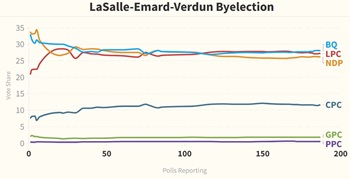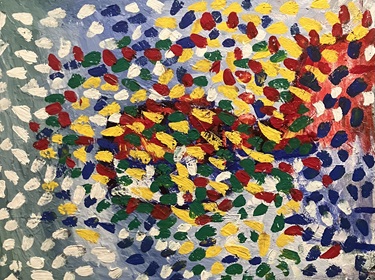Montreal and Winnipeg by-elections : what’s it like in Canada “teetering on the edge of the wrong side of history”?
Sep 18th, 2024 | By Randall White | Category: In BriefRANDALL WHITE, FERNWOOD PARK,TORONTO. WEDNESDAY, SEPTEMBER 18, 2024. You can read about Ben Rhodes as one of three “young hotshots” appointed “as assistant deputies” at the Obama administration’s National Security Council (NSC), on page 218 of Barack Obama’s A Promised Land (2020).
There are as well more than a dozen additional references to Mr. Rhodes’s high Washington public servant adventures in the book’s index.
(1) Ballad of Ben Rhodes
Ben Rhodes kept his job at the NSC throughout the Obama administration (January 20, 2009 – January 20, 2017). He played noted roles in US policy on the initially so democratically hopeful Arab Spring of 2011, and “in the conversations that led to Obama reestablishing the United States’ diplomatic relations with Cuba [late in 2014], which had been cut off since 1961.”
In his early 30s when his NSC career began, Rhodes was 40 when the Obama Democratic administration was abruptly succeeded by the first and hopefully only US (MAGA) Republican administration of Donald Trump. Since then Mr. Rhodes has earned a living as a political journalist and commentator (in print and on TV), a best-selling book author, and “co-chair of National Security Action, a political NGO” with fellow Obama alumnus Jake Sullivan.
Right now I am especially interested in Ben Rhodes’s “American Descent” article in the August 15, 2024 “Summer Issue” of the New York Review of Books. The piece was written clearly enough just before the Biden resignation and Harris succession. But it alluded to what is still in the air in a memorable way.
It is important, Mr Rhodes urged, not to ignore “inconvenient truths about how the United States ended up here, teetering on the edge of the wrong side of history.” In both the United States and Canada today, in the almost autumn of 2024, I think we remain teetering on this edge. And it won’t end until November 5, 2024!
(2) The two September 16 federal by-elections in Canada
Back on the querulous day of Friday. September 13, polling guru Éric Grenier was discussing the “fall political season” in Ottawa. It “could prove to be a tumultuous one, as the end of the deal between Justin Trudeau’s Liberals and Jagmeet Singh’s NDP opens up the possibility of a snap election and ensures that brinksmanship will be the order of the day, at least until that vote happens — something that Pierre Poilievre’s Conservatives will try to force as soon as possible.”
M Grenier went on : “But a potential catalyst for upheaval will come very soon on Monday, as voters go to the polls in the Elmwood–Transcona and LaSalle–Émard–Verdun byelections, contests in which all three parties, plus the Bloc Québécois, have something at stake.”
Then, just after Noon on Sunday, September 15, prominent pollster David Coletto tweeted/posted on Twitter/X : “If voters tomorrow in Montreal and Winnipeg are thinking the same way that Canadians across the country are thinking, I suspect we may see the Conservatives win Elmwood-Transcona and the BQ win in Montreal.”
In fact the sovereigntist Bloc Quebecois (BQ) did finally win in LaSalle-Emard-Verdun, a longstanding “safe” Liberal seat in Montreal. But after a long night of back and forth the sovereigntists finished less than a single point ahead of the Liberals (and not quite two points ahead of the NDP!) — BQ 28%, LIB 27.2%, NDP 26.1%, CON 11.6%.
In the frequent NDP riding of Elmwood-Transcona in Winnipeg, however, David Coletto proved clearly wrong (more or less). In fact, the NDP held on, a good four points ahead of nonetheless seriously surging Conservatives — NDP 48.1% , CON 44%, LIB 4.8% , GRN 1.3%.
(3) What it may or may not mean — a not quite so overwhelming Conservative wave ahead ??

What I think both by-election results on Monday, September 16, 2024 most strongly suggest is that the giant Conservative wave which the polls do imply could actually be in the wings — something like Diefenbaker in 1958 or Mulroney in 1984 — does so far not have some parallel potency down on the real-world ground of by-elections.
If this looming wave were quite as large as some partisan debate and even much mainstream media reporting (and yes at least most seat projections from recent but increasingly long-lived opinion polls) do seem to suggest, the Pierre Poilievre Conservatives would have won the latest federal by-elections in both ridings, in Montreal and Winnipeg.
(And well in the real world, the Conservatives would have won Winnipeg at least, and done considerably better than an also-ran 11.6% in Montreal.)
As it happened, it was the sovereigntist Bloc Quebecois that finally defeated the Liberals in Montreal by no great margin. In the great metropolis of the old la belle province (new je me souviens) — historic head office of the transcontinental (and multicultural) Canadian fur trade that was a forerunner of the present confederation — even New Democrats did much better than Conservatives! And then the NDP finally did hang on in Winnipeg by a respectable margin. (Even if a popular new provincial premier may have played a role here as well.)
(4) But does another regrettable Canadian journey on the wrong side of history still loom, regardless of what happens on November 5 in USA?
Meanwhile over drinks on the outdoor patio of a Toronto bar it was agreed that, whatever might happen in the two federal by-elections then actually taking place, we in Canada are also teetering on the edge of the wrong side of history — as we look out on the fate of our own federal politics (aka “manufactured drama” in Ottawa) over the coming autumn and winter 2024–2025.
It is not as if the Conservatives have any majority of the cross-Canada popular vote — even in the opinion polls. But in our kind of Westminster parliamentary democracy with as many as five political parties in (more or less) serious competition, surprisingly less than a majority of the country-wide popular vote can bring surprisingly more of a majority of seats in parliament.
Just see the recent 2024 “change” election in the United Kingdom, ancient homeland of the Mother of Parliaments — which gave the admirable Labour Party about two-thirds of the seats in the House of Commons with about one-third of the UK-wide popular vote.
On such twisted calculations Pierre Poilievre’s Conservatives could finally come to office in Ottawa all too soon.
Now, however, to start with, can they convince their NDP and BQ colleagues to join them in bringing Justin Trudeau’s newly liberated Liberal minority government down — and precipitating a federal election sooner than later, in which Conservatives even under their current small-minded leadership (and much worse) will win some dramatic parliamentary majority.
And another regrettable Canadian journey on the wrong side of history will begin.





